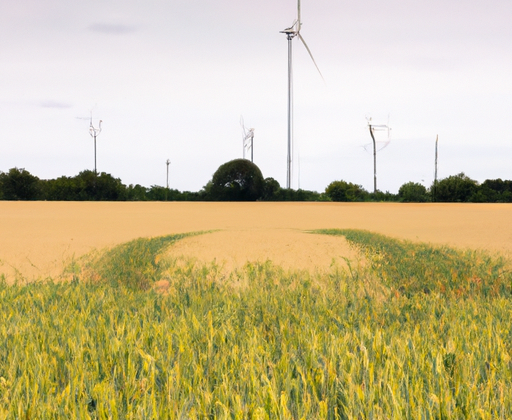What’s the Deal with a Vegan Diet?
So, you’re curious about this whole “vegan” thing, eh? Well, let me break it down for you. A vegan diet is all about ditching animal products and focusing on plant-based foods. It means saying “bye-bye” to meat, dairy, eggs, and honey. Now, before you decide to jump on the vegan bandwagon, it’s important to weigh the pros and cons so you know exactly what you’re getting yourself into.
Let’s start with the pros. First off, going vegan can have some serious nutritional benefits. Plant-based diets tend to be rich in vitamins, minerals, and fiber, which can help improve digestion, boost your energy levels, and even lower the risk of certain diseases. Plus, embracing a vegan lifestyle can have a positive impact on the environment. By cutting out animal agriculture, which is a major contributor to greenhouse gas emissions and deforestation, you’ll be doing your part to combat climate change. And hey, let’s not forget about the ethical side of things. By choosing not to consume animal products, you’re taking a stance against animal cruelty and supporting a more compassionate food system. Pretty cool, right?
Now, as with anything in life, there are also some downsides to consider. One challenge of a vegan diet is making sure you’re getting all the essential amino acids your body needs. Unlike meat and dairy, plant-based proteins may not contain a complete set of amino acids, so it’s important to mix and match different protein sources to ensure you’re meeting your nutritional requirements. Another thing to keep in mind is vitamin B12. This essential nutrient is primarily found in animal products, so if you go vegan, you’ll need to find alternative sources or consider taking supplements to avoid deficiencies. Lastly, there is a potential for nutrient deficiencies on a vegan diet if you don’t plan your meals carefully. It’s important to make sure you’re getting enough iron, calcium, omega-3 fatty acids, and other nutrients that are commonly found in animal products.
Now that you have the lowdown on the pros and cons, it’s up to you to decide if a vegan diet is the right fit for you. If you’re interested in learning more about the ethical aspect of veganism, you can check out this article here. However, I highly recommend consulting with a healthcare provider or a registered dietitian before making any major dietary changes. They can provide personalized advice and help ensure you’re meeting all your nutritional needs. So, think it over, do your research, and make the choice that feels right for you. Happy eating!
The Pros of a Vegan Diet
So, you’re considering a vegan diet, huh? Well, let me tell you, there are some major perks to going vegan! First off, let’s talk about the nutritional benefits. When you ditch animal products and load up on fruits, vegetables, whole grains, and nuts, you’re giving your body a big boost of vitamins, minerals, and antioxidants. It’s like a supercharged fuel for your system! Plus, studies have shown that vegans tend to have lower cholesterol and blood pressure, reducing the risk of heart disease and other ailments.
But it’s not just your own health that benefits from a vegan diet; the environment gets a big thumbs up too. Animal agriculture is a major contributor to greenhouse gas emissions, deforestation, and water pollution. By choosing plant-based options, you’re helping to reduce your carbon footprint and combat climate change. It’s like being a superhero for the planet, making a positive impact every time you sit down for a meal.
Now, let’s touch on the ethical considerations. Many people choose a vegan lifestyle because they believe in treating animals with respect and compassion. By avoiding animal products, you’re saying no to the exploitation and suffering of animals raised for food. It’s a way to align your values with your plate and make a stand against animal cruelty. Talk about making a difference!
The Cons of a Vegan Diet
Now, let’s get real and talk about the downsides of a vegan diet. Don’t get me wrong, there are plenty of benefits, but it’s important to consider the potential challenges you may encounter.
First off, one of the difficulties I faced when going vegan was getting complete sources of amino acids. You see, amino acids are the building blocks of protein, and it’s crucial to make sure you’re getting all of the essential amino acids your body needs. This can be a bit tricky with a vegan diet, as certain plants may be lacking in certain amino acids. But fear not, my friend, because with some careful planning and combining different plant-based protein sources, you can still meet your amino acid requirements.
Another factor to consider is the challenge of getting enough B12. Vitamin B12 is primarily found in animal products, and it plays a vital role in maintaining a healthy nervous system. Unfortunately, plant-based sources of B12 are limited and not as easily absorbed by our bodies. So, it’s recommended to take B12 supplements or consume fortified foods to ensure you’re meeting your B12 needs.
Lastly, there is the potential for nutrient deficiencies in a vegan diet. While it’s absolutely possible to get all the nutrients you need from plant-based foods, it requires some extra attention and planning. Nutrients like iron, calcium, and omega-3 fatty acids can be a bit more challenging to obtain in sufficient amounts. But don’t worry, mate! By incorporating a variety of plant-based protein sources, leafy greens, fortified products, and adding some flaxseeds or chia seeds to your diet, you can meet your nutrient needs without a hitch.
So, there you have it – the cons of a vegan diet. It’s important to remember that everyone’s experience and dietary needs are unique. Before embarking on a vegan journey, I highly recommend seeking advice from a healthcare provider who can provide you with expert guidance tailored to your individual needs. Stay informed, mate, and make the best decision for your health and well-being!
Conclusion: Weighing the Pros and Cons of a Vegan Diet
Well, now that we’ve delved into the pros and cons of a vegan diet, it’s time to sum it all up and give you my two cents. From a nutritional standpoint, a vegan diet can offer many benefits. With a focus on fruits, vegetables, whole grains, and legumes, you’re likely to get an abundance of essential vitamins, minerals, and antioxidants. Plus, by eliminating animal products, you’re doing your part in reducing greenhouse gas emissions and conserving water, making it an environmentally sustainable choice.
On the flip side, there are a couple of potential roadblocks to consider. Ensuring you get complete sources of amino acids and sufficient amounts of B12 can require some extra planning and supplementation. Additionally, there is the risk of nutrient deficiencies if you’re not careful to meet all your nutritional needs.
However, don’t let these drawbacks discourage you! Before diving headfirst into a vegan lifestyle, it’s always a good idea to consult a healthcare provider who can guide you through the process and help you address any potential nutrient concerns. They can offer personalized advice based on your individual needs and help you develop a well-rounded eating plan to maintain good health.
All in all, weighing the pros and cons is crucial when considering a vegan diet. But with the right knowledge and professional guidance, you can make an informed decision that aligns with your values, health goals, and dietary preferences. So go ahead and explore the vegan world, but remember, professional advice is your secret ingredient to success!

